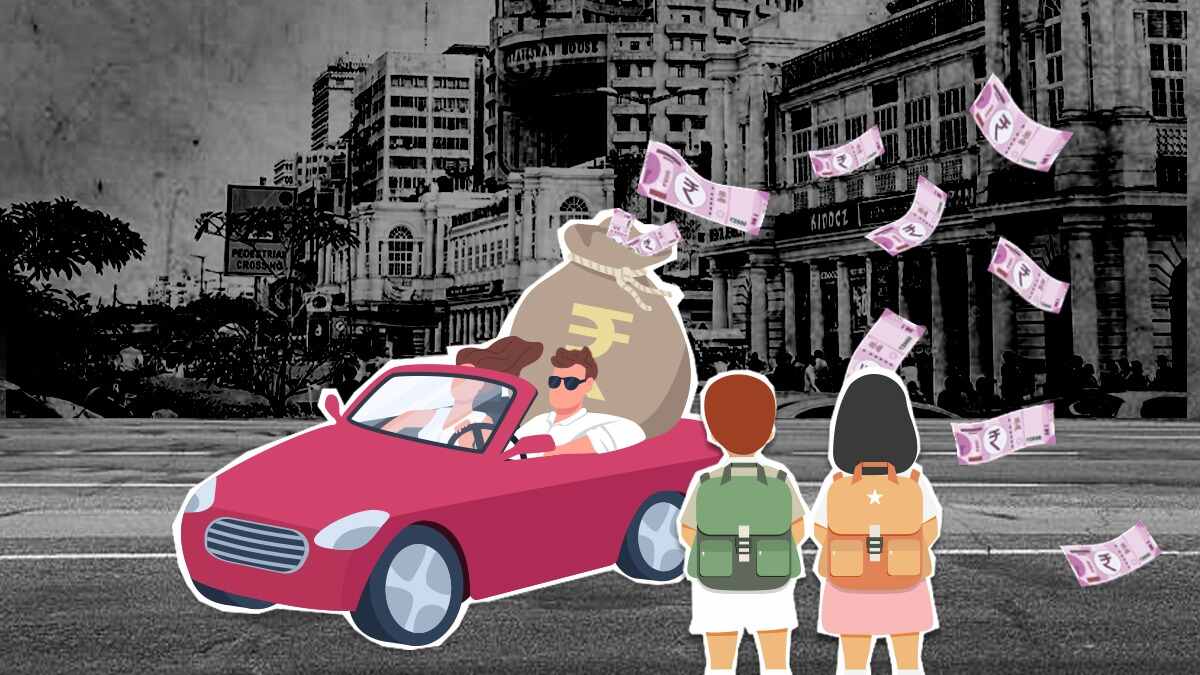
On Monday, a new study revealed that the richest 1% in India now own more than 40% of the nation’s total wealth. Meanwhile, the bottom half of the population together just owns 3% of the wealth.
The rights group Oxfam International released the Indian supplement of its yearly inequality report on the first day of the World Economic Forum’s Annual Meeting in Davos. They stated that if India’s 10-richest are taxed at 5% then it can fetch the entire money to bring children back to school.
It added, “A one-off tax on unrealised gains from 2017-2021 on just one billionaire, Gautam Adani, could have raised ₹1.79 lakh crore, enough to employ more than five million Indian primary school teachers for a year.”

The report, ‘Survival of the Richest’ further noted that if India’s billionaires are taxed once at 2% of their total wealth, it will fetch ₹40,423 crore which would support the nutrition of the malnourished people in the country for the next three years.
The wealth inequality is so grim that a one-time tax of 5% on the 10 richest billionaires in India (₹1.37 lakh crore) is more than 1.5 times the funds estimated by the Health and Family Welfare Ministry (₹86,200 crore) and the Ministry of Ayush (₹3,050 crore) for the year 2022-23.
The report also talked about gender inequality where female workers only earned 63 paise for every one rupee a male worker earned. Moreover, the difference is even starker for scheduled castes and rural workers– the former only 55% of what the advantaged groups earned, and the latter made only half of the urban earnings between 2018-19.
Oxfam’s report is a mix of quantitative and qualitative information to explore the implications of inequality in India. Sources like Forbes and Credit Suisse have been used to know the wealth inequality and billionaire wealth in the nation, while NSS, Union Budget documents and parliamentary questions have been used to confirm the arguments made throughout the report.
Don't miss:Only 25% Of Women Make Up The Entire Workforce In India, Claims Survey

Oxfam said that since the pandemic began till November 2022, billionaires have seen their wealth surge in India by 121% or ₹3,608 crore per day in real terms. The total number of billionaires also increased from 102 in 2020 to 166 in 2022.
On the flip side, the bottom 50% of the population paid approximately 64% of the total ₹14.83 lakh crore in Goods and Services Tax (GST), with the top 10% only paying 3% of the GST.
The wealth of India’s 100 richest has grown to $660 billion which is enough to fund the total Union Budget for more than 18 months.
Don't miss:Women CEOs Running 10% Of Fortune 500 Companies Shows Progression In Gender Diversity

Oxfam India CEO Amitabh Behar stated that the country’s marginalised such as the Dalits, Adivasis, Muslims, women and informal sector workers continue to suffer in the system that ensures the survival of only the richest. “The poor are paying disproportionately higher taxes, spending more on essential items and services compared to the rich. The time has come to tax the rich and ensure they pay their fair share,” he said.
Behar also urged the Union finance minister to implement progressive tax measures including wealth and inheritance tax, which have been historically proven to be impactful in battling inequality.
Oxfam cited a nationwide survey by Fight Inequality Alliance India (FIA India) in 2021, which found that more than 80% of people in India support tax on the rich and corporations who earned record profits during the COVID-19 pandemic. It added that more than 90% of participants demand budget measures to combat inequality such as right to health, universal social security and expansion of the budget to prevent gender-based violence.
Gabriela Bucher, Executive Director of Oxfam International said, “It’s time we demolish the convenient myth that tax cuts for the richest result in their wealth ‘trickling down’ to everyone else. Taxing the super rich is the strategic precondition to reducing inequality and resuscitating democracy.” She added that we need to do this for innovation, stronger public services and happier and healthier societies.
Urging the Union finance minister, Oxfam India asked her to introduce one-off solidarity wealth taxes and windfall taxes to end crisis profiteering. It also demanded a permanent rise in taxes on the richest 1% and particularly raised taxes on capital gains that are subject to lower tax rates than other forms of income.
As envisaged in the National Health Policy, Oxfam called for inheritance, property and land taxes, as well as net wealth taxes to elevate the budgetary allocation of the health sector to 2.5% of the GDP by 2025. Oxfam also wants public health systems to be strengthened and budgetary allocation for education to increase to the global benchmark of 6% of the GDP.
It added that this will ensure workers in formal and informal sectors are paid basic minimum wages. “The minimum wages should be at par with living wages which is essential for living a life with dignity,” Oxfam concluded.
Our aim is to provide accurate, safe and expert verified information through our articles and social media handles. The remedies, advice and tips mentioned here are for general information only. Please consult your expert before trying any kind of health, beauty, life hacks or astrology related tips. For any feedback or complaint, contact us at compliant_gro@jagrannewmedia.com.